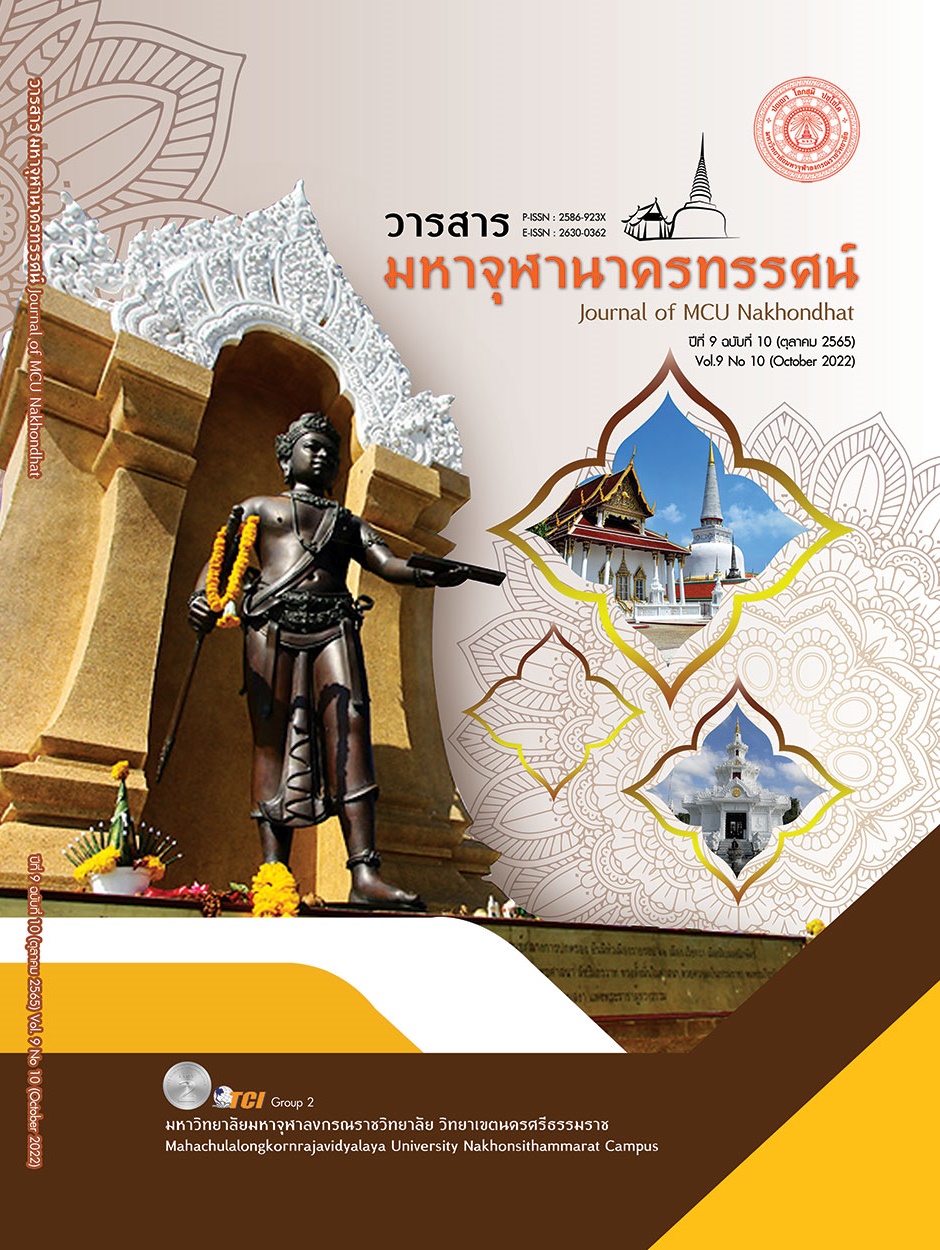MEDIATION APPROACHES DEVELOPMENT THROUGH GUIDEBOOK IN CRIMINAL OFFENCES WITH VICTIMS
Main Article Content
Abstract
This research article aims to study on efficiency in generating knowledge, effect on cooperation or success of the guidebook for mediation in criminal offences with victims. The research experimented by using mainly quantitative by studying related theories and collect data from samples. Then analyzed and developed to draft a guidebook for mediation in criminal offences with victims. Quality inspection by 5 experts. A questionnaire was used to assess the effectiveness as research tools. The study found that a Guidebook in Criminal Offenses with Victims is effective in generating knowledge on the following issues: 1) Knowledge about the advantages and disadvantages of the litigation process compared to mediation obtained from the manual. Most of the sample group saw that most effective 2) Knowledge of conflict analysis as a source of litigation obtained from the manual. Most of the sample group saw that most effective 3) Knowledge of conflict solutions to meet the actual needs in each case obtained from the manual. Most of the sample group saw that most effective 4) Affecting cooperation or mediation success of the manual Most of the sample group saw that most effective 5) Benefits that people will receive from the manual Most of the sample group saw that most effective. The results of the research leading to the creation guidebook for mediation in criminal offences with victims will develop a more effective approach to mediation in the courts of justice. develop the succession without being tied solely to the technique or skill of the mediator and provide people to equal access the quality of the mediation processes. This is Mediation Approaches in sustainable Development.
Article Details

This work is licensed under a Creative Commons Attribution-NonCommercial-NoDerivatives 4.0 International License.
References
จิรประภา อัครบวรและคณะ. (2548). การจัดการความรู้. กรุงเทพมหานคร : ก. พลพิมพ์.
ชลธร มีวงศ์อุโฆษ. (2556). การไกล่เกลี่ยข้อพิพาทในชั้นบังคับคดี. กรุงเทพมหานคร: กรมบังคับคดี.
ชลัท ประเทืองรัตนา. (2555). การไกล่เกลี่ยคนกลางและการแก้ไขความขัดแย้ง. วารสารศาลยุติธรรมปริทัศน์, 6(3) 51-76.
บรรพต ต้นธีรวงศ์. (2553). พลวัตรการจัดการความขัดแย้ง. กรุงเทพมหานคร : คบไฟ.
ประภาดา โชติมณี. (2554). Modern KM applications in business management : จัดการความรู้ อย่างไรให้ใช้ได้ผลกับทุกระบบ. (พิมพ์ครั้งที่ 2). กรุงเทพมหานคร : แผนกประมวญความรู้ ฝ่ายวิจัยสถาบันเพิ่มผลผลิตแห่งชาติ.
มนสิการ ดิษเณร วัชชวัลคุ. (2556). กลยุทธ์การสื่อสารที่นำไปใช้ในการเจรจาไกล่เกลี่ยข้อพิพาทเพื่อนำไปสู่ผลสำเร็จ. ใน เอกสารวิชาการหลักสูตรผู้บริหารกระบวนการยุติธรรมระดับสูง รุ่นที่ 17 วิทยาลัย การยุติธรรม. กรุงเทพมหานคร: สำนักงานศาลยุติธรรม.
วันชัย วัฒนศัพท์. (2550). ความขัดแย้ง หลักการและเครื่องมือแก้ปัญหา (พิมพ์ครั้งที่ 2). นนทบุรี : สถาบันพระปกเกล้า.
Nonaka, I. & Takeuchi, H. (1995). The knowledge-creating company. Oxford, NY : Oxford University Press.
Nurdeefa Sama. (2562). เทคโนโลยีสำหรับการบริหารจัดการความรู้ (Seci Model). เรียกใช้เมื่อ 10 กรกฎาคม 2565 จาก https://mynurdeefaa1.blogspot.com/p/seci-model.html)
Samniang prayutte. (2555). กระบวนการสร้างสรรค์ความรู้ (Knowledge Creation). เรียกใช้เมื่อ 10 กรกฎาคม 2565 จาก https://www.gotoknow.org/


